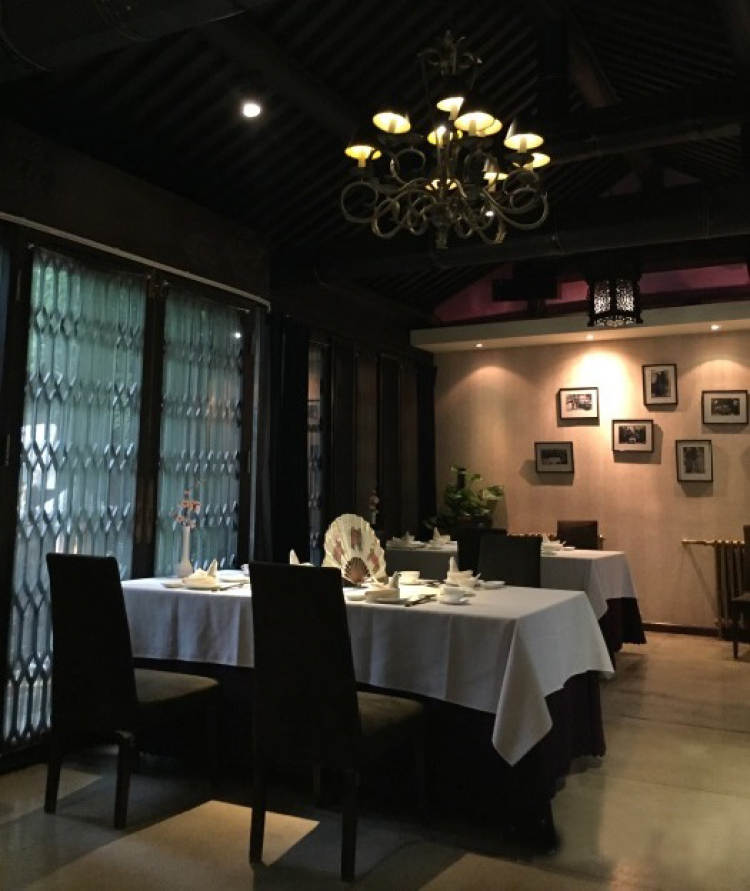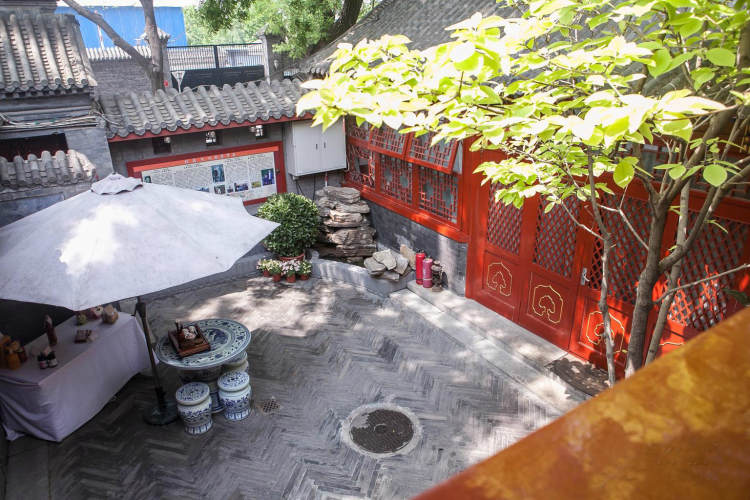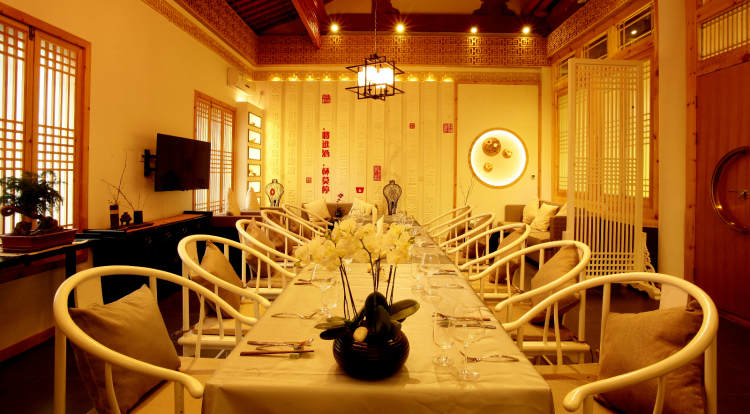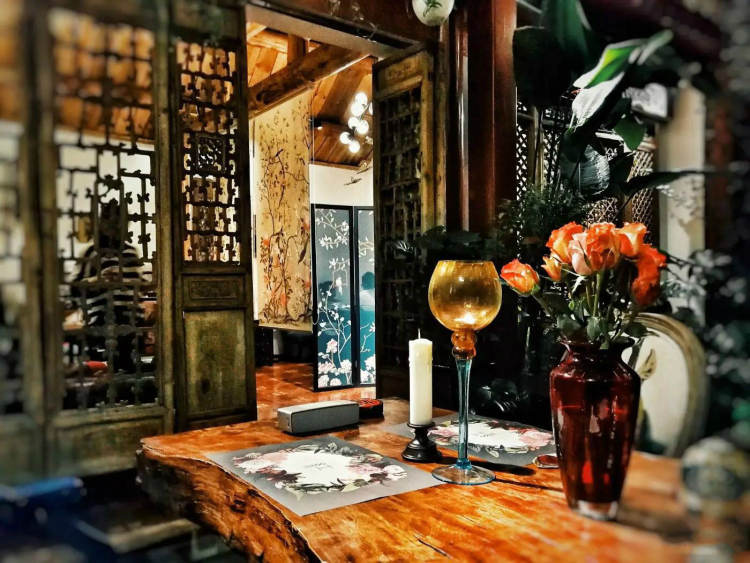2025 Top 10 Recommended for Private Restaurants in Beijing
-
956 per capita Taste 8.9 Environment 8.9 Service 8.91
- Score
- 87
- popularity
- 18451
-
Waki The Home Private Chef Madian/Anzhen
1000 per capita Taste 8.9 Environment 8.9 Service 8.92- Score
- 86
- popularity
- 17975
-
Plum House Family Banquet Houhai/Nanluoguxiang
781 per capita Taste 8.9 Environment 8.9 Service 8.93- Score
- 85
- popularity
- 19374
-
DeepRed Crimson Dongzhimen/Lama Temple
617 per capita Taste 8.9 Environment 8.9 Service 8.94- Score
- 83
- popularity
- 16360
-
Tan family cuisine Wangfujing/Dongdan
2000 per capita Taste 8.9 Environment 8.9 Service 8.95- Score
- 82
- popularity
- 26731
-
Shanhai Building Houhai/Nanluoguxiang
897 per capita Taste 8.9 Environment 8.9 Service 8.96- Score
- 79
- popularity
- 11904
-
Li family cuisine Houhai/Nanluoguxiang
657 per capita Taste 8.9 Environment 8.9 Service 8.97- Score
- 76
- popularity
- 17153
-
Salt in the world Dongzhimen/Lama Temple
102 per capita Taste 8.9 Environment 8.9 Service 8.98- Score
- 75
- popularity
- 20278
-
Kirin Pavilion private dishes Houhai/Nanluoguxiang
105 per capita Taste 8.9 Environment 8.9 Service 8.99- Score
- 74
- popularity
- 16468
-
Eight cockfights private dishes International trade
84 per capita Taste 8.9 Environment 8.9 Service 8.910- Score
- 70
- popularity
- 13981
-
Yue Bin Restaurant Houhai/Nanluoguxiang
65 per capita Taste 8.9 Environment 8.9 Service 8.911- Score
- 68
- popularity
- 13393
Recommended rankings for related categories
- Beijing buffet
- Peking Steak
- Japanese restaurant in Beijing
- Peking duck restaurant
- Beijing hot pot restaurant
- Beijing Cafe
- Beijing Hunan Restaurant
- Beijing Cantonese restaurant
- Beijing Lu cuisine
- Korean cuisine in Beijing
- Beijing Sichuan restaurant
- Beijing Jiangsu and Zhejiang Restaurant
- Western-style dinner in Beijing
- Beijing private restaurant
- Beijing Hui Restaurant
- Beijing Northeast Restaurant
- Beijing Vegetarian Restaurant
- Beijing Chaoshan beef hot pot
- Beijing Shabu Shabu Restaurant
- Beijing Tea Restaurant
- Xinjiang restaurant in Beijing
- German Restaurant in Beijing
- Northwest cuisine of Beijing
- Yunnan Restaurant in Beijing
- Beijing Craft Beer Bar
- Southeast Asian restaurant in Beijing
- Beijing Brunch Restaurant
- Beijing Cake Shop
- Spanish Restaurant in Beijing
- Foreign Restaurant in Beijing
- Beijing Music Restaurant
- Beijing cocktail bar
- Beijing seafood restaurant
- Beijing crayfish shop
- Beijing Grilled Barbecue Restaurant
- Peking kebab restaurant
- Beijing Noodle Restaurant
- Beijing Dumpling Restaurant
- Beijing Northwest Noodle Restaurant
Top 10 popular private restaurants in Beijing
-
1
26731
Tan family cuisine
One of China's most famous government dishes was created by Tan Zongjun, a bureaucrat in the late Qing Dynasty. He mixed his hometown Cantonese cuisine with Beijing cuisine into Tanjia cuisine, which shook the capital. After the family road falls, the children and grandchildren set up a banquet at home to help the family, which has been passed down to this day, and the folk legend is that this is the earliest private in China
-
2
20278
Salt in the world
You may have heard of the mysterious banquet of Wangjing 606 in Beijing, which is the flowing water banquet set up by Huang Ke, who has multiple identities such as media person, cultural person, gourmand and businessman, in a community in Wangjing. Although the visitors did not refuse, Huang Ke was reluctant to make the address public to the public
-
3
19374

Plum House Family Banquet
Mei refers to the outstanding opera artist Mei Lanfang. As the name suggests, Mei Mansion makes Mei Lanfang's family heirloom dishes. Due to coincidence, Mei Baojiu, the son of Mei Lanfang, held a family banquet in Beijing, and for more than ten years, there has been an endless stream of diners from all walks of life. The predecessor of the Meifu Family Banquet was Lord Belle
-
4
18451

Chengfu banquet
Chengfu Banquet is probably the best place to experience a state banquet outside of the Diaoyutai State Guesthouse, and it is also one of the four high-end private dishes in Beijing. Cheng Ruming, a national treasure, has served as the chef of state banquets for decades, and his skills have won the trust of several top national leaders
-
5
17975

Waki The Home Private Chef
Hemu is Beijing's five-star Chinese private chef, blending the best of Chinese food with the best of Western food, and even the smallest appetizer will not disappoint. Mr. Yang Zhansheng, the chef and founder, was originally the head chef of Chinese cuisine at the five-star Fairmont Hotel, in order to achieve his own catering
-
6
17153
Li family cuisine
At the end of the Qing Dynasty, Li Zijia, the minister of the Ministry of Internal Affairs, was in charge of the imperial dining room, and it is said that he smuggled the menu home, and the court craftsmanship has been passed down to this day. Since its opening in 1985, it has received many prime ministers, ambassadors and celebrities, and has received two Michelin stars for three consecutive years from its branch in Roppongiyama, Japan
-
7
16468
Kirin Pavilion private dishes
There are many creative cuisine restaurants and private food fly restaurants hidden in Beijing's hutongs, and Qilin Pavilion is one of the most popular affordable private dishes. Restaurants like Xiaoyanglou and Ciqi Restaurant, which have been open for several years, have accumulated a lot of popularity, but the location is a little off
-
8
16360

DeepRed Crimson
Crimson is the name of the movie, the name of the song, and the color of the precipitation of the courtyard of the deep house. Whether it's a coincidence or an intentional one, this quiet name alone has left countless diners with a reminiscent experience. It is located in the hutong within the second ring road of Beijing, and the constant temperature and fresh air system make the whole building
-
9
13981
Eight cockfights private dishes
Eight Fighting is one of the more successful private dishes on the fast-selling catering assembly line, and the four branches are located in downtown shopping malls, close to office buildings, and are very popular. Eight fighting chickens are actually firewood chicken that has been raised for a year, but the grain intake is roughly the average broiler on the market
-
10
13393
Yue Bin Restaurant
Yue Bin Restaurant is the first choice for home-cooked food in the Dongsi Hutong area, and of course many tourists try its name as China's first individual restaurant. There are waiting chairs in front of the store, and the food is very popular. Among the private restaurants that have emerged in recent years, many restaurants have gone to great lengths to build
Top Leaderboard Recommendations
-
▸
Top 10 recommended buffets in Beijing
-
▸
Peking Steak is ranked in the top 10 recommendations
-
▸
Top 10 recommended Japanese restaurants in Beijing
-
▸
Beijing Roast Duck Restaurant is in the top 10 recommendations
-
▸
Top 10 recommended hot pot restaurants in Beijing
-
▸
Top 10 recommended cafes in Beijing
-
▸
Beijing Hunan restaurant is ranked in the top 10 recommended
-
▸
Top 10 recommended Cantonese restaurants in Beijing
-
▸
Beijing Lu cuisine ranks among the top 10 recommendations
-
▸
Top 10 recommended Korean cuisine in Beijing
-
▸
Top 10 recommended Sichuan restaurants in Beijing
-
▸
Top 10 recommended restaurants in Jiangsu and Zhejiang restaurants in Beijing
-
▸
Top 10 recommended Western meals in Beijing
-
▸
Top 10 recommended private restaurants in Beijing
-
▸
Beijing Hui restaurant ranked among the top 10 recommendations
-
▸
Top 10 recommended restaurants in Beijing's Northeast Restaurant
-
▸
Top 10 recommended vegetarian restaurants in Beijing
-
▸
Beijing Chaoshan beef hot pot is ranked in the top 10 recommendations
-
▸
Beijing shabu shabu restaurant is ranked in the top 10 recommended
-
▸
Top 10 recommended tea restaurants in Beijing
-
▸
Top 10 recommended Xinjiang restaurants in Beijing
-
▸
Top 10 recommended German restaurants in Beijing
-
▸
Beijing Northwest cuisine is ranked in the top 10 recommendations
-
▸
Top 10 recommended Yunnan restaurants in Beijing
-
▸
Top 10 recommended craft beer bars in Beijing
-
▸
Top 10 Best Southeast Asian Restaurants in Beijing
-
▸
Top 10 recommended restaurants in Brunch Beijing
-
▸
Top 10 recommended cake shops in Beijing
-
▸
Top 10 recommended Spanish restaurants in Beijing
-
▸
Top 10 recommended foreign restaurants in Beijing
-
▸
Top 10 recommended music restaurants in Beijing
-
▸
Top 10 recommended cocktail bars in Beijing
-
▸
Top 10 recommended seafood restaurants in Beijing
-
▸
Beijing crayfish shop is ranked in the top 10 recommended
-
▸
Beijing Grill Barbecue Restaurant is ranked in the top 10 recommended
-
▸
Top 10 recommended kebab restaurants in Beijing
-
▸
Top 10 recommended noodle restaurants in Beijing
-
▸
Top 10 recommended dumpling restaurants in Beijing
-
▸
Top 10 recommended noodle restaurants in Northwest Beijing








